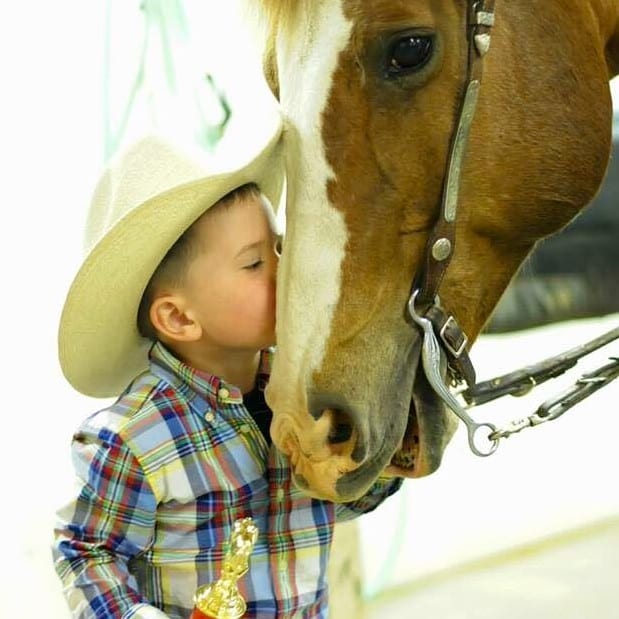Well respected judge and trainer, Sandy Jirkovsky of Kearney, Nebraska recently posted on Facebook a call for all trainers to revive their lesson programs. “I challenge all my fellow trainers across the country to rekindle your lesson program. The youth entries will not go up unless we as trainers get new kids on horses. It’s easy to say we are too busy or too specialized, but our future depends on it. Kick start your lesson program in February!”
This post had us thinking about whether our industry’s recent lax attitude toward beginner lesson programs has been one of the primary reasons our youth entries have been declining, or is it a combination of several different factors? Recently, AQHA and APHA have developed several programs to try and increase youth participation. Take Me Riding, a website AQHA has developed, caters toward getting youth involved with horses.
GoHorseShow asked several professionals in our industry – young and veteran, to weigh in on this hot topic.
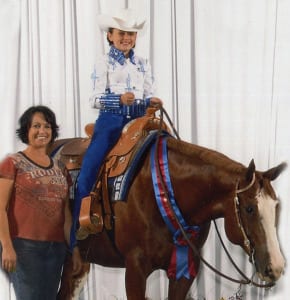 Kelly Boles Chapman – I think Sandy is exactly right. Revamping and refocusing would certainly help. Some people just aren’t set up to teach new children or adults to the industry: the expense of lesson horses, and often schedule adjusting can be challenging, not to mention the infinite patience that can be required. That said, if in our programs, we do have some capacity and acumen to bring newcomers in, than perhaps we should really make the effort. When you think about the economics of this, lesson horses have to work pretty hard to earn their keep. You almost need to look at them as staff. In addition to revamping our lesson programs, it may be helpful to look at aligning with a program like IEA — Interscholastic Equestrian Association. I’m intrigued by the fact that it’s for 6th to 12th graders and they don’t need to own their own horse to show.
Kelly Boles Chapman – I think Sandy is exactly right. Revamping and refocusing would certainly help. Some people just aren’t set up to teach new children or adults to the industry: the expense of lesson horses, and often schedule adjusting can be challenging, not to mention the infinite patience that can be required. That said, if in our programs, we do have some capacity and acumen to bring newcomers in, than perhaps we should really make the effort. When you think about the economics of this, lesson horses have to work pretty hard to earn their keep. You almost need to look at them as staff. In addition to revamping our lesson programs, it may be helpful to look at aligning with a program like IEA — Interscholastic Equestrian Association. I’m intrigued by the fact that it’s for 6th to 12th graders and they don’t need to own their own horse to show.
 Sally Blackwell – We offer lessons still. I think the root of the dwindling youth numbers is the expense of owning a horse, not to even mention what it costs to show one. When parents put a pencil to it, they quickly realize they can buy a 4-wheeler or a car or any number of other “toys” for the same money or less. I think decreasing show fees for the youth increases the participation. Last year, LQHA followed TQHA’s lead and made our youth all inclusive entries $100 at our shows. It brought open show kids to our registered shows that had never shown AQHA before. I watched their skill levels increase over the year as they competed and several of them won some year end awards for their efforts. So, I definitely think making it financially feasible is the way to go. The horse crazy kids are still there, but it seems like only the wealthy ones can afford to do this.
Sally Blackwell – We offer lessons still. I think the root of the dwindling youth numbers is the expense of owning a horse, not to even mention what it costs to show one. When parents put a pencil to it, they quickly realize they can buy a 4-wheeler or a car or any number of other “toys” for the same money or less. I think decreasing show fees for the youth increases the participation. Last year, LQHA followed TQHA’s lead and made our youth all inclusive entries $100 at our shows. It brought open show kids to our registered shows that had never shown AQHA before. I watched their skill levels increase over the year as they competed and several of them won some year end awards for their efforts. So, I definitely think making it financially feasible is the way to go. The horse crazy kids are still there, but it seems like only the wealthy ones can afford to do this.
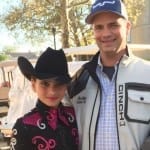 Brad Jewett – Yes that is so true! We need to teach some young assistants how to teach and train and how to build a relationship with horses and riders. There’s too many assistants worried about being somebody famous and not about learning and helping new people to find a home in this business. The loss of our smaller shows has also hurt our growth. Facilities have gotten too expensive, so it drives our smaller shows out of business. This is barely a hobby anymore. It’s become a business for nearly everyone involved. I have a few new clients that I hardly have a place to get them out to get started without gouging their pocket book. The more we drive participation up it will bring all of our costs down. Trainers are also too worried about people winning as soon as they get into the sport. They make excuses for why they didn’t win. That’s not real life. Anywhere. Why do we teach that here?
Brad Jewett – Yes that is so true! We need to teach some young assistants how to teach and train and how to build a relationship with horses and riders. There’s too many assistants worried about being somebody famous and not about learning and helping new people to find a home in this business. The loss of our smaller shows has also hurt our growth. Facilities have gotten too expensive, so it drives our smaller shows out of business. This is barely a hobby anymore. It’s become a business for nearly everyone involved. I have a few new clients that I hardly have a place to get them out to get started without gouging their pocket book. The more we drive participation up it will bring all of our costs down. Trainers are also too worried about people winning as soon as they get into the sport. They make excuses for why they didn’t win. That’s not real life. Anywhere. Why do we teach that here?
 Sandy Jirkovsky – I do think many of us have become complacent about beginner riding lessons. I have had lots of great responses to my post and think we could be starting a good trend. I know for a fact that when I was doing a lot of lessons; we had a lot more kids interested in showing with us. I stopped our lessons because of being too busy and haven’t really had anymore youth showing with us since that time. We got a lot of calls for lessons, but I didn’t provide the service for a few years. Hence no new people in the show pen.
Sandy Jirkovsky – I do think many of us have become complacent about beginner riding lessons. I have had lots of great responses to my post and think we could be starting a good trend. I know for a fact that when I was doing a lot of lessons; we had a lot more kids interested in showing with us. I stopped our lessons because of being too busy and haven’t really had anymore youth showing with us since that time. We got a lot of calls for lessons, but I didn’t provide the service for a few years. Hence no new people in the show pen.
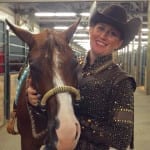 Chelsea Carlson – When I first began my own business a few years, I had a lesson horse available and used him once or twice a week. I eventually sold the older gelding because there was not much use past one kid. Yes, it did help introduce a couple riders to my program, but overall the costs didn’t pan out for me. I believe the future is in the youth of the horse industry, but there are other ways of going about to get them more involved. This year, I have already been asked to do small private clinics with high school equestrian teams and 4H groups in the area. I typically find a couple kids out of these clinics that want to come for individual lessons. The problem with getting into the industry is the overwhelming money factor. It helps that most of the youth in these programs have already began and have an understanding of how much things cost. I do still, however, keep one of my more broke training horses available for lessons to help get someone going who maybe is considering getting into the sport. Keeping my options open gives my program less limits.
Chelsea Carlson – When I first began my own business a few years, I had a lesson horse available and used him once or twice a week. I eventually sold the older gelding because there was not much use past one kid. Yes, it did help introduce a couple riders to my program, but overall the costs didn’t pan out for me. I believe the future is in the youth of the horse industry, but there are other ways of going about to get them more involved. This year, I have already been asked to do small private clinics with high school equestrian teams and 4H groups in the area. I typically find a couple kids out of these clinics that want to come for individual lessons. The problem with getting into the industry is the overwhelming money factor. It helps that most of the youth in these programs have already began and have an understanding of how much things cost. I do still, however, keep one of my more broke training horses available for lessons to help get someone going who maybe is considering getting into the sport. Keeping my options open gives my program less limits.
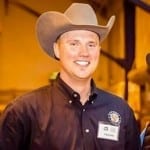 Chris Gray – I definitely think that the lack of quality beginner riding programs has effected our youth numbers. I myself am guilty of doing away with my beginner program. For me, the overhead of keeping and caring for my lesson horses became too high. It was a dollars and cents thing. Also, the time involved with a lesson program becomes overwhelming, with the addition of training horses, and the lessons that go along with the show customers. I would love to be able to find that balance between lessons and a heavy show schedule. That is something I am truly going to look into after Sandy’s post. Without supplying our industry with new blood, it will slowly dwindle, not a good thought.
Chris Gray – I definitely think that the lack of quality beginner riding programs has effected our youth numbers. I myself am guilty of doing away with my beginner program. For me, the overhead of keeping and caring for my lesson horses became too high. It was a dollars and cents thing. Also, the time involved with a lesson program becomes overwhelming, with the addition of training horses, and the lessons that go along with the show customers. I would love to be able to find that balance between lessons and a heavy show schedule. That is something I am truly going to look into after Sandy’s post. Without supplying our industry with new blood, it will slowly dwindle, not a good thought.
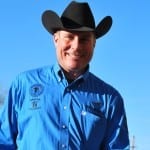 Charlie Cole – Actually, I’ve said the same thing for years. For me, I used to start lots of kids, but my business changed and I started showing nationally. Having a lesson program was too hard to keep up with with being gone so much. I don’t think the younger generation of trainers really want to teach young kids. So there’s a large hole there.
Charlie Cole – Actually, I’ve said the same thing for years. For me, I used to start lots of kids, but my business changed and I started showing nationally. Having a lesson program was too hard to keep up with with being gone so much. I don’t think the younger generation of trainers really want to teach young kids. So there’s a large hole there.
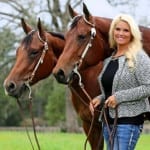 Becky George – I agree 100% with Sandy. We used to get all of our customers (youth kids) from lesson programs. Kids have to have a place to learn the basics and develop the love of riding before they jump into the show world. My best kids have started from lesson programs on worn out horses that were retired show horses or retired hunters. I love getting kids from a good hunter lesson program because they know the fundamentals and have great form, you can make them into exceptional show riders. I myself have looked into starting a lesson program back up soon.
Becky George – I agree 100% with Sandy. We used to get all of our customers (youth kids) from lesson programs. Kids have to have a place to learn the basics and develop the love of riding before they jump into the show world. My best kids have started from lesson programs on worn out horses that were retired show horses or retired hunters. I love getting kids from a good hunter lesson program because they know the fundamentals and have great form, you can make them into exceptional show riders. I myself have looked into starting a lesson program back up soon.
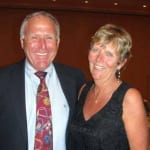 Larry Spratto – We have worked with youth exhibitors since 1978. The kids over the last few decades have gone from school activities and sports during the school year with summer’s off, to school activities year round. We still have kids taking lessons and riding, but it has changed a lot. In the past, when the kids got to the barn they would run to their horses stall to greet them, brush them, saddle them etc. Now there is not much interaction, no time for brushing, saddling etc. If we have our way, the kids do it, most of the time the parents are carrying saddles, grooming, remembering the spurs, boots etc while the child is on an electronic device. Every once in awhile, we get a truly horse crazy kid that wants to brush or saddle the extra horses, clean stalls, sweep or help with chores…this is rare. The numbers at the shows tells us the interest is growing in the amateur and select group and dwindling in the youth events. Hate to bring up the expense factor, but the reality is the average working person can’t afford the every rising cost of maintaining and outfitting a horse and rider along with the cost of sending them down the road to shows. We actually have a lot of 4-H kids who haul in for lessons and are hungry to learn. Our doors are always open to kids and people that want to work at it.
Larry Spratto – We have worked with youth exhibitors since 1978. The kids over the last few decades have gone from school activities and sports during the school year with summer’s off, to school activities year round. We still have kids taking lessons and riding, but it has changed a lot. In the past, when the kids got to the barn they would run to their horses stall to greet them, brush them, saddle them etc. Now there is not much interaction, no time for brushing, saddling etc. If we have our way, the kids do it, most of the time the parents are carrying saddles, grooming, remembering the spurs, boots etc while the child is on an electronic device. Every once in awhile, we get a truly horse crazy kid that wants to brush or saddle the extra horses, clean stalls, sweep or help with chores…this is rare. The numbers at the shows tells us the interest is growing in the amateur and select group and dwindling in the youth events. Hate to bring up the expense factor, but the reality is the average working person can’t afford the every rising cost of maintaining and outfitting a horse and rider along with the cost of sending them down the road to shows. We actually have a lot of 4-H kids who haul in for lessons and are hungry to learn. Our doors are always open to kids and people that want to work at it.
 Stephanie McAlexander – I think strong lesson programs are the backbone to continuing this industry. In today’s fast paced world of technology, horseback riding is going to become a lost art if we don’t keep kids coming through the door. Providing an affordable way for parents and kids to learn the ropes is the first step to developing a show client; be it an open show or breed show participant. We have started many clients this way at our barn. We offer lesson packages and gift certificates to bring in interested people. As trainers we must be willing to educate as many people as possible if we want to continue this great sport and share our love of the horse.
Stephanie McAlexander – I think strong lesson programs are the backbone to continuing this industry. In today’s fast paced world of technology, horseback riding is going to become a lost art if we don’t keep kids coming through the door. Providing an affordable way for parents and kids to learn the ropes is the first step to developing a show client; be it an open show or breed show participant. We have started many clients this way at our barn. We offer lesson packages and gift certificates to bring in interested people. As trainers we must be willing to educate as many people as possible if we want to continue this great sport and share our love of the horse.
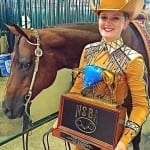 Carli Pitts – In 2005, P5 Equestrian started a lesson program in Evansville, Indiana. The lesson program increased to 300 lessons per month by 2007. At that time, the first time horse owner rate was approximately 12% of the lesson clients. By mid 2009, there was a sharp decrease in lesson enrollment. This was attributed to the fact the economy was in decline. By 2012, the rate of new horse ownership by lesson clients was 0%.
Carli Pitts – In 2005, P5 Equestrian started a lesson program in Evansville, Indiana. The lesson program increased to 300 lessons per month by 2007. At that time, the first time horse owner rate was approximately 12% of the lesson clients. By mid 2009, there was a sharp decrease in lesson enrollment. This was attributed to the fact the economy was in decline. By 2012, the rate of new horse ownership by lesson clients was 0%.
In 2013, we decided to discontinue the lesson program as it no longer created enough revenue to cover the cost. The cost for a lesson program includes the cost of the lesson horses; the increased cost of liability insurance, which is based upon the dollar amount of lessons given per year; extra tack that would accommodate any size rider; a facility that is safe for novice riders along with their friends and family who have no horse experience at all.
In addition, lessons must be scheduled after training horses are worked so that the arena is used for the students only. For trainers that show heavily, it is very difficult to maintain a consistent lesson schedule. Of course you cannot use horses in training for this program, they must be older, experienced horses that are very safe. We believe it would be valuable for AQHA trainers to create an alliance with lesson barns in their area to introduce students to AQHA and the programs offered. Trainers could give clinics on AQHA showing and horse ownership, this way people could decide if showing is something that would interest them.
Of course, some sort of compensation should be given to the lesson barn for turning that client over as a training client. AQHA could sponsor local 4H shows to promote and support the lesson barns in order to move them into showing on the AQHA level. With this said, we believe the lesson program concept can be beneficial to our industry, but it is extremely difficult to manage and run a quality lesson program while being a full time trainer.
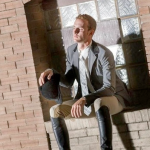 Julian Harris – My mother has a fabulous lesson program that involves little kids, her youngest is three, oldest is 11. Her lesson program is a feeder program into my business. My mother has the world’s best lesson horses, and she is brilliant at starting young riders. She gives kids the tools and the confidence necessary to move forward in their riding. Finding the good feeder programs that have the time to devote to beginners makes it a lot easier to bring them into full fledged show programs. As trainers, it’s important to either start or to reach out to those programs in your local area.
Julian Harris – My mother has a fabulous lesson program that involves little kids, her youngest is three, oldest is 11. Her lesson program is a feeder program into my business. My mother has the world’s best lesson horses, and she is brilliant at starting young riders. She gives kids the tools and the confidence necessary to move forward in their riding. Finding the good feeder programs that have the time to devote to beginners makes it a lot easier to bring them into full fledged show programs. As trainers, it’s important to either start or to reach out to those programs in your local area.
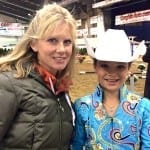 Missy Thyfault – When I first began training as a business, I did as many outside lessons as I could in a day. It was a great way to build a clientele and supplement my “barely there” income. In doing those lessons, my business grew in training horses and I currently keep 21 head in training. I consciously made the decision not to do outside lessons for one reason only. That reason is that I felt it stretched me too thin, and I needed to focus on the training horses and clients. Time is precious and there just isn’t enough of it in a day. My love lies in preparing my horses and clients to ride at a competitive level of showing.
Missy Thyfault – When I first began training as a business, I did as many outside lessons as I could in a day. It was a great way to build a clientele and supplement my “barely there” income. In doing those lessons, my business grew in training horses and I currently keep 21 head in training. I consciously made the decision not to do outside lessons for one reason only. That reason is that I felt it stretched me too thin, and I needed to focus on the training horses and clients. Time is precious and there just isn’t enough of it in a day. My love lies in preparing my horses and clients to ride at a competitive level of showing.
I do refer these lesson requests to other trainers who have chosen to focus on outside lessons. I most definitely feel it is important not to drop the ball when someone shows interest in getting involved in horses. I do feel torn when talking to someone that I can’t help because I was that girl who started with lessons. They were my favorite Christmas gift one year and I will never forget how excited I was. I lived for the next lesson and it lit a fire in me that hasn’t died out to this day. My first instructor shaped my life more than she knows. I know how important it is to make it a great experience.
I am also a mother of a teenage son who shows and was involved in football. When I was young, sports were more seasonal. It seems they are committed year round if a student wants to be involved in a high school sport. That makes it difficult to attend horse shows and participate in a sport successfully. Another thing most parents struggle with is trying to attend the circuits around school time. Most students are not home schooled and most shows are four day circuits anymore. The weekend show is almost a thing of the past. I prefer a four day or more circuit but most kids can’t attend until the weekend unless it falls on a school break.
As a solution, I feel the IEA riding teams offer beginner students a place to compete and it is very available. Most programs are run in respected trainers barns allowing them the opportunity to advance. There are many great coaches that choose to work at an open show/beginner level and focus on that alone. It is just important to do your research and make an educated choice in starting out. Everyone starts out at the beginning and has to make the decision how far they want to take it and to what level. If the experience is positive, the result can be a life long relationship with horses and riding. And that is great for everyone in the industry.
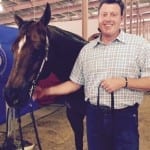 Shawn Hays – Kids growing up today are definitely not as close to agriculture (horses) as they once were, especially in the last 20 years with the advancement of cell phones and tablets and computers in general. Also, children have many other things in there lives, competitive endeavors which take their time and their parent’s financial support. However, I do believe that a well done lesson program can succeed and even feed itself over time. Kids and parents being involved will draw interest from other kids and parents. This interest can feed new clients to trainers and in turn AQHA.
Shawn Hays – Kids growing up today are definitely not as close to agriculture (horses) as they once were, especially in the last 20 years with the advancement of cell phones and tablets and computers in general. Also, children have many other things in there lives, competitive endeavors which take their time and their parent’s financial support. However, I do believe that a well done lesson program can succeed and even feed itself over time. Kids and parents being involved will draw interest from other kids and parents. This interest can feed new clients to trainers and in turn AQHA.
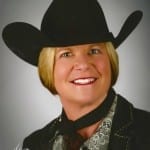 Tammy Denlinger-Lickliter – Sandy is smart. Be like Sandy! I started teaching hunter seat equitation at age 15. My parents would drop me of at the barn and I taught grown women and children how to ride. Forty years later, I still am. I have always tried to “feed the pipeline from the bottom up”. It doesn’t take but a minute to straighten that bridle rein, tighten that show halter. Sometimes, it’s hard to be patient, and I think that is why so many of us don’t do beginners/public lessons. I try to constantly remind my self, “that was me once”. One of my favorite things to do when I judge open/4H shows is to greet those little ones who are showing for the first time. I know I made a positive experience for that child and chances are, they will come and play again with a little bit of confidence and a positive experience under their belt. There is a world full of little girls/ boys and their moms that are horse crazy. Who better than us to nurture their passion. They may never win the World Show, but more than likely they will buy a horse one day and/or send their children to the barn for lessons.
Tammy Denlinger-Lickliter – Sandy is smart. Be like Sandy! I started teaching hunter seat equitation at age 15. My parents would drop me of at the barn and I taught grown women and children how to ride. Forty years later, I still am. I have always tried to “feed the pipeline from the bottom up”. It doesn’t take but a minute to straighten that bridle rein, tighten that show halter. Sometimes, it’s hard to be patient, and I think that is why so many of us don’t do beginners/public lessons. I try to constantly remind my self, “that was me once”. One of my favorite things to do when I judge open/4H shows is to greet those little ones who are showing for the first time. I know I made a positive experience for that child and chances are, they will come and play again with a little bit of confidence and a positive experience under their belt. There is a world full of little girls/ boys and their moms that are horse crazy. Who better than us to nurture their passion. They may never win the World Show, but more than likely they will buy a horse one day and/or send their children to the barn for lessons.
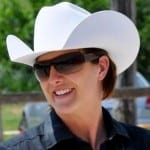 Iris Oplusstil – I think our lives changed a lot. From all I can see, I think life is too busy for some kids. Their parents want them to be great in every aspect, so there is no time for three hours at the barn a day, and I think it is too expensive for a lot of people. Years ago, everything was cheaper – lessons and horses and everything that goes with it. I would love to see more great lesson programs again, but I think it is just too much of an investment for people. All the other sports are way more affordable and don’t take as much time and commitment as horses. It takes a lot of money to be involved with horses even just for lessons. We grew up around horses, now kids grow up in cookie cutter housing tracts. There is no space for farm animals anymore. I think it is very seasonal and once summer comes around; I have a lot more people wanting to take lessons. I guess I don’t have the perfect answer. Riding for sure has become the sport for upper class people.
Iris Oplusstil – I think our lives changed a lot. From all I can see, I think life is too busy for some kids. Their parents want them to be great in every aspect, so there is no time for three hours at the barn a day, and I think it is too expensive for a lot of people. Years ago, everything was cheaper – lessons and horses and everything that goes with it. I would love to see more great lesson programs again, but I think it is just too much of an investment for people. All the other sports are way more affordable and don’t take as much time and commitment as horses. It takes a lot of money to be involved with horses even just for lessons. We grew up around horses, now kids grow up in cookie cutter housing tracts. There is no space for farm animals anymore. I think it is very seasonal and once summer comes around; I have a lot more people wanting to take lessons. I guess I don’t have the perfect answer. Riding for sure has become the sport for upper class people.
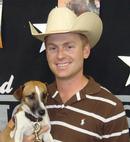 Reid Thomas – I definitely do. I grew my roots in this business with a successful lesson program. Honesty, enthusiasm, authenticity, and quality instruction motivates people to become involved with their passion of horses. Low key, introductory horse lessons, camps, and clinics are a fundamental must in this business.
Reid Thomas – I definitely do. I grew my roots in this business with a successful lesson program. Honesty, enthusiasm, authenticity, and quality instruction motivates people to become involved with their passion of horses. Low key, introductory horse lessons, camps, and clinics are a fundamental must in this business.
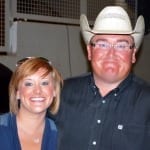 Ryan Kail – I think revamping lesson programs will help, it will get younger kids riding. Also, shows like the Level 1 Championships and maybe leveling the youth classes would even the playing fields for some of the youth kids. Getting kids involved with their local IEA teams is also a great way to the kids involved and introduce them to possible college riding teams.
Ryan Kail – I think revamping lesson programs will help, it will get younger kids riding. Also, shows like the Level 1 Championships and maybe leveling the youth classes would even the playing fields for some of the youth kids. Getting kids involved with their local IEA teams is also a great way to the kids involved and introduce them to possible college riding teams.
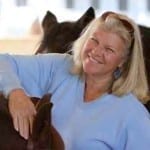 BJ LeMaster – My lesson program is over 90% kids and I have a waiting list. Trainers who are not patient and make demands of mandatory horse purchase or expensive lease, or expensive equipment or mandatory showing are missing the boat. Not all kids start out wanting to show. Not all kids will show. It should not matter. The growth of the industry and the perpetuation of this fantastic lifestyle needs to come from our youth being supported in the manner that they choose. Sandy is right. Support the youth. Help them fulfill their dreams, not yours!
BJ LeMaster – My lesson program is over 90% kids and I have a waiting list. Trainers who are not patient and make demands of mandatory horse purchase or expensive lease, or expensive equipment or mandatory showing are missing the boat. Not all kids start out wanting to show. Not all kids will show. It should not matter. The growth of the industry and the perpetuation of this fantastic lifestyle needs to come from our youth being supported in the manner that they choose. Sandy is right. Support the youth. Help them fulfill their dreams, not yours!
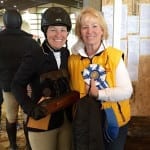 Lainie DeBoer – Rekindling lesson programs would contribute to increased participation for sure. It’s a bit of a double edged sword because lesson programs have diminished due to increased costs. It has become so hard to maintain a string of school horses financially; most people stopped to save their business from going under. You have to teach a lot of lessons to cover hay, shaving, feed, farrier, vet, insurance, arena time, and so forth. The feeder programs are a thing of the past. I know my insurance increases dramatically with increased number of lessons and especially with my own personal horses. A small solution is if college programs could give lessons. The students could gain mileage in a teaching environment. They already have the horses and the facility. I think they could even develop a small introductory horse show situation to encourage people to show. They could even add a horse show management side to the equine studies program. The students could give lessons with mentors that are professionals, gain experience judging the small shows, and get to know the management side of it.
Lainie DeBoer – Rekindling lesson programs would contribute to increased participation for sure. It’s a bit of a double edged sword because lesson programs have diminished due to increased costs. It has become so hard to maintain a string of school horses financially; most people stopped to save their business from going under. You have to teach a lot of lessons to cover hay, shaving, feed, farrier, vet, insurance, arena time, and so forth. The feeder programs are a thing of the past. I know my insurance increases dramatically with increased number of lessons and especially with my own personal horses. A small solution is if college programs could give lessons. The students could gain mileage in a teaching environment. They already have the horses and the facility. I think they could even develop a small introductory horse show situation to encourage people to show. They could even add a horse show management side to the equine studies program. The students could give lessons with mentors that are professionals, gain experience judging the small shows, and get to know the management side of it.
 Jeff Burley – I don’t think it is has to do with trainers not having lesson programs. I think there are not enough people that are willing to start kids with the basics, even if that might be what they are best at. At the barn I work out of, they also offer a great lesson program and day camp. This has then led to kids graduating from the lesson program into a show program. It’s hard for some trainers to have a lesson program when they have to focus on their show horses. When I was younger, 4H was huge and that also seems to be dying off. 4H and lessons are where I learned the basics before moving up.
Jeff Burley – I don’t think it is has to do with trainers not having lesson programs. I think there are not enough people that are willing to start kids with the basics, even if that might be what they are best at. At the barn I work out of, they also offer a great lesson program and day camp. This has then led to kids graduating from the lesson program into a show program. It’s hard for some trainers to have a lesson program when they have to focus on their show horses. When I was younger, 4H was huge and that also seems to be dying off. 4H and lessons are where I learned the basics before moving up.
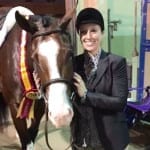 Alyse Roberts – I do feel that part of the problem may be with many trainers not offering lesson programs. Other factors most certainly play a role in this ongoing problem, such as the expense of this sport we all love, time restraints of kids now, and the long distances from their homes to find a decent trainer to help them. This problem will take some time and dedication to reverse, but with the support of the big organizations such as AQHA and APHA, surely everyone can put their heads together and implement some new programs to bolster the youth numbers. Could there be small lesson programs offered by trainers at the big shows to give newcomers a chance to see what this sport is all about. I’m sure most trainers would be willing to offer an hour here and there to bring this wonderful sport to the people that may be there just to watch. Hopefully, other trainers will have ideas that can help with a big problem that will hurt all of us in this sport.
Alyse Roberts – I do feel that part of the problem may be with many trainers not offering lesson programs. Other factors most certainly play a role in this ongoing problem, such as the expense of this sport we all love, time restraints of kids now, and the long distances from their homes to find a decent trainer to help them. This problem will take some time and dedication to reverse, but with the support of the big organizations such as AQHA and APHA, surely everyone can put their heads together and implement some new programs to bolster the youth numbers. Could there be small lesson programs offered by trainers at the big shows to give newcomers a chance to see what this sport is all about. I’m sure most trainers would be willing to offer an hour here and there to bring this wonderful sport to the people that may be there just to watch. Hopefully, other trainers will have ideas that can help with a big problem that will hurt all of us in this sport.
What do you think? Do you have ideas to increase youth participation? Let us know in the comments section of this article and on our Facebook page.


